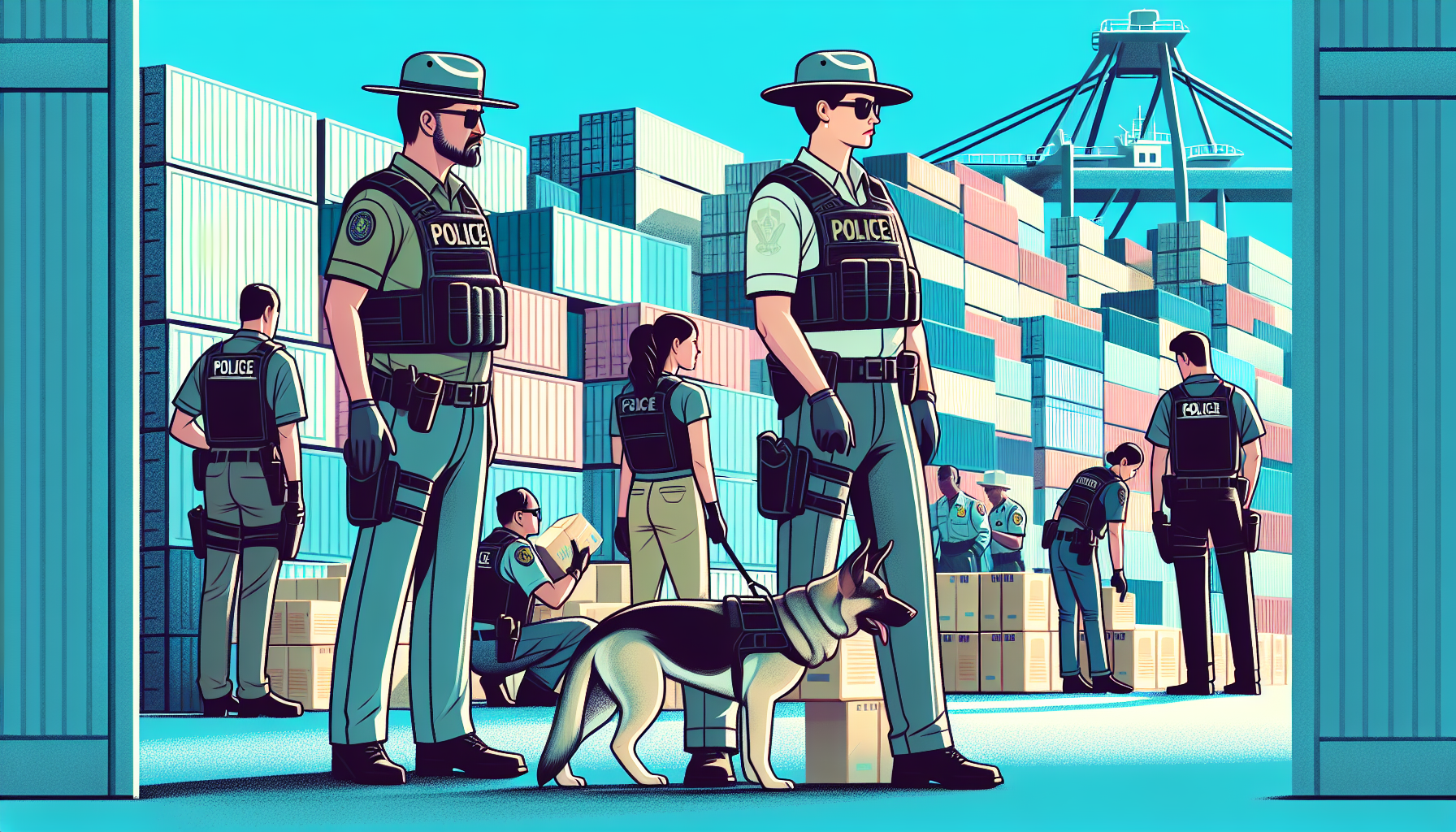Definition
Drug interdiction in military operations refers to measures taken to interrupt or halt the production, trafficking, and distribution of illicit drugs. This can involve various strategies such as surveillance, law enforcement operations, and direct combat against drug cartels. It’s employed by many nations as part of their defense and security policies to mitigate the societal harm caused by drug abuse.
Key Takeaways
- Drug interdiction is a military operation targeted at interrupting illegal drug trafficking. This involves stopping substances before they reach their intended destination.
- It leverages military resources such as personnel, vehicles, aircraft, and naval vessels. It is a multinational effort often requiring cooperation amongst different countries to effectively curb drug trafficking.
- While effective in some cases, drug interdiction operations have been critiqued due to issues like displacement effects (pushing traffickers to new routes), potential violation of sovereignty of nations, and not completely eliminating the problem due to high demand for illegal substances.
Importance
The term “Drug interdiction” is of significant importance in military operations as it refers to the act of disrupting or halting the production, transport, and sale of illegal drugs.
This is an integral part of maintaining national security and public safety, as the illicit drug trade often supports criminal activity, undermines social stability, and can fuel conflict.
By carrying out drug interdiction efforts, the military plays a vital role in cutting off the supply of illegal drugs, weakening criminal or insurgent groups, and enhancing the well-being of communities impacted by the drug trade.
Effective drug interdiction can also contribute to stronger international cooperation and peace-building efforts.
Explanation
Drug interdiction in military operations is predominantly tasked with the goal of disrupting and halting the illegal drug trade. Given the significant volume of illegal narcotics circulating globally, drug interdiction emerges as a critical aspect of national security strategies.
It is used to stifle the resources of drug cartels and networks that often use the illicit profits to fund other criminal activities or in some cases, terrorism. Also, the scale and spread of drug production and trade implicate numerous nations, thus drug interdiction often requires cooperative international efforts.
In terms of application, drug interdiction can encompass a wide variety of actions. These might include strategies like aerial surveillance for fields cultivating illicit drugs, naval patrols to inspect ships suspected of drug smuggling, or cooperating with partner nations to raid and dismantle drug trafficking hubs.
Additionally, interdiction efforts may also involve tracing and freezing financial assets linked to the drug trade or creating public awareness campaigns about the dangers of drug abuse. Hence, the purpose of drug interdiction is not only to restrict the movement of drugs but also to cripple the financial and institutional infrastructure that supports the illicit drug trade.
Examples of Drug interdiction
Operation Panama Express – This is a long-term, high-risk, undercover investigation led by the United States Drug Enforcement Administration (DEA). The operation is focused on drug interdiction through advanced surveillance of maritime channels coming from South and Central America. It has resulted in over a thousand arrests and the seizure of hundreds of tons of cocaine.
The Golden Triangle Drug Interdiction – The Golden Triangle, covering parts of Myanmar, Laos, Thailand, and Vietnam, is one of the world’s foremost regions in the production and trafficking of opium and heroin. Various military operations have been launched over the years by local governments, supported by international agencies, to interdict drug trafficking in this region.
Operation Martillo – This is an international mission that gathers Western Hemisphere and European nations in order to stop the illicit drug trafficking routes in the coastal waters along the Central American isthmus. Led by the U.S. Joint Interagency Task Force South (JIATFS), the operation focuses on sharing information and bringing together air, land, and sea assets from the U.S. Department of Defense, the Department of Homeland Security, and international partners.
FAQs on Drug Interdiction Military Operations
What is drug interdiction in military operations?
Drug interdiction in military operations refers to the act of interrupting or stopping the flow of illegal drugs into a specific area or country. Military forces are often deployed to enforce drug laws and prevent the trafficking and distribution of drugs.
Why is drug interdiction important in military operations?
Drug interdiction is crucial in military operations because it helps reduce the supply of illegal drugs, destabilizes and disrupts drug trafficking organizations, and enhances national security. It’s also important for maintaining law and order and keeping communities safe.
Which military branches are involved in drug interdiction operations?
Various branches of the military, including the Army, Navy, Air Force, and Coast Guard, are typically involved in drug interdiction operations. The level of involvement may vary depending on the specific mission and the geographical area.
What tactics are involved in drug interdiction?
The tactics involved in drug interdiction may include securing borders, conducting surveillance operations, intercepting smugglers at sea, and searching and seizing illegal drugs. The exact tactics used can vary based on the specifics of the operation.
What challenges are faced in drug interdiction operations?
Some challenges faced in drug interdiction operations can include the vast geographical areas to be covered, the sophistication and adaptability of drug trafficking networks, and the various tactics used by traffickers to avoid detection and arrest.
Related Military Operation Terms
- Military Service
- Substance Abuse
- Prescription Medications
- Veterans Health Administration
- Treatment Programs
Sources for More Information
- U.S. Drug Enforcement Administration (DEA): This is the official website of the DEA, a U.S. federal law enforcement agency under the Department of Justice, that primarily handles drug interdiction operations.
- U.S. Customs and Border Protection (CBP): This agency plays a significant role in drug interdiction at the borders of the United States.
- RAND Corporation: RAND has conducted extensive research on drug policy and enforcement, including drug interdiction efforts.
- International Narcotics Control Board (INCB): The INCB is an independent, quasi-judicial expert body established by the United Nations to monitor governments’ compliance with international drug control treaties.
 Benefits.com Advisors
Benefits.com Advisors
With expertise spanning local, state, and federal benefit programs, our team is dedicated to guiding individuals towards the perfect program tailored to their unique circumstances.
Rise to the top with Peak Benefits!
Join our Peak Benefits Newsletter for the latest news, resources, and offers on all things government benefits.



















